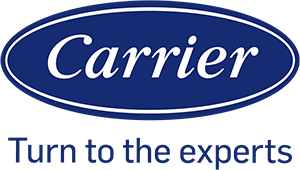You might think you’re free from maintaining your air conditioning unit during the winter, but not quite. You want to take steps to ensure your air conditioning is ready when you need it next summer. At C & C Heating and Air Conditioning, our expert advice is designed to protect your home’s AC system year-round.
Cover Your HVAC Unit
One way to winterize your outdoor AC unit is to cover it. A cover protects the unit’s coils from dirt and debris that can get inside the unit and damage the essential parts. HVAC unit covers are made to protect the outside unit from winter’s wrath, which is quite brutal in the Detroit Area.
Coil blockages can restrict airflow, which causes severe damage to the AC system over time. Yet, debris on the coils is not the only thing you need to worry about. Snow and ice melt can also enter the outdoor unit and harm the system, causing the interior elements to expand and contract as the liquid freezes and thaws.
Do All AC Units Need Covering?
Although covering an AC unit is recommended for older systems, it’s not necessary for newer systems. Today’s AC systems are built to be tough. They have been tested under extreme circumstances to ensure they will hold up even in the harshest conditions. Modern AC units have condensers that are constructed with a durable finish, making them much better at withstanding weather elements like snow and rain. The coils and other mechanical elements also do a decent job of holding up to extreme winter temperatures. If you have a newer system, you might not need to cover the system during winter.
However, even if you have a newer AC system, you still want to take care of winterizing the unit. Periodically check the unit throughout the winter for the following:
- Animal nests
- Branches
- Leaves
- Pine needles
Buildup inside the AC unit can lead to damage that affects the system’s overall performance and shortens its lifespan. If you want to get as many uninterrupted years of use from the system as possible, taking the appropriate steps to protect the unit now goes a long way toward hitting the 20-year mark.
Reasons for Not Covering Your AC Unit
Many people attempt to cover their AC units, but they do it poorly. Covering the outdoor unit incorrectly can cause several problems. There are some common reasons that you might not want to cover your outdoor AC unit.
Rodent infestation is one consideration. Rats and other rodents always look for warm places to nest during the winter months. If you’ve covered your outdoor unit, you’re more likely to attract rodents seeking shelter from the cold temperatures. Once they nest in your outdoor unit, it’s only a matter of time before they start gnawing on wiring and other parts. This type of damage can cost a significant amount of money to repair.
Mold growth is another issue to think about. You don’t want moisture to affect the outdoor unit. When you cover your AC unit, it can provide obvious protection against rain and snow. However, moisture can get into the unit through other means. it’s nearly impossible for wind to get into the unit and remove this moisture or dust naturally. When moisture and dirt accumulate, it isn’t long before mold begins growing. Mold reduces the AC’s efficiency and contributes to poor indoor air quality levels.
When Is It a Good Idea to Use an HVAC Cover?
Although most HVAC professionals advise against covering the AC unit for prolonged periods, there are instances when covering the outdoor unit makes sense.
Blizzards and other extreme weather events present the need for your system to be covered. When a blizzard is predicted, it does not hurt to cover the unit temporarily for the duration of the storm. Blizzard conditions usually dump more snow than usual and could harm the interior coils.
Another appropriate occasion to cover your unit is during your vacation. If you plan to take a winter getaway, covering the outdoor AC unit can protect it in case winter weather visits your home while you are away. For those homeowners who stay in warmer climates for the entire winter, covering the unit can keep sticks, leaves, and other debris from building up in the unit until you return home in the spring.
Older units are more likely to need covering. The older the AC is, the more likely it is to be affected by severe weather. HVAC professionals recommend covering the unit to protect it from freezing. This prevents damage to the critical components of your unit.
Warranty requirements should also be taken into consideration. Did you recently purchase a new AC unit? Read your warranty information carefully to determine the manufacturer’s requirements for covering your unit. Some manufacturers require people to cover their equipment, and others don’t. Some manufacturers don’t give directions one way or the other. If you don’t follow the manufacturer’s recommendations, you put your warranty at risk of being voided.
Purchase the Right Cover
Not all HVAC covers are the same. Avoid plastic covers when shopping. Outdoor AC units need space to breathe, and plastic isn’t a breathable material. It could also cause problems, such as rusting and internal moisture damage.
Buy a cover made for residential units. You might think buying commercial products will give you more protection, but they are not made to protect small household units. Commercial covers are often made of plastic, which is not recommended for residential units.
The main thing to look for in a cover is one that prevents moisture buildup and does not restrict airflow to the unit. Ask our qualified service technicians to find the right cover for your home’s outdoor unit. We can recommend the top covers to buy.
If you’re not keen on covering your AC unit with a breathable wrap, consider installing an accessory that attaches to the top of the unit. These accessories aim to create a barrier, protecting the unit from debris while redirecting water and improving airflow. If you decide to go this route, check with the manufacturer to see if it offers an all-weather protective attachment for your model.
You could even purchase a pre-made hardcover. If you purchase one of these covers, make sure they’re constructed of wood or vinyl materials to ensure proper ventilation. Also, make sure the cover is at least two-feet wider and higher than the AC unit to ensure breathability. These covers work best for AC units installed at ground level on a concrete pad, not those attached to the house.
Don’t Be Shy, Ask Your Local HVAC Professional for Advice
Not sure if an HVAC cover is the right choice for your system? Don’t be afraid to ask for advice. We’re happy to help you decide the best way to take care of your home’s HVAC system. If you decide you want to cover the outdoor unit, we can help you choose the right cover, eliminating any guesswork.
Do you have more questions about winterizing your HVAC system? Do you need duct cleaning or furnace tune-ups to prepare for winter? We provide year-round HVAC maintenance, system tune-ups, repairs, and priority scheduling in Roseville, MI. Whatever you need to keep your HVAC system working its best, you can count on us for help. Our technicians are standing by and ready to help you with all your residential HVAC services. Contact C & C Heating and Air Conditioning for more information!





